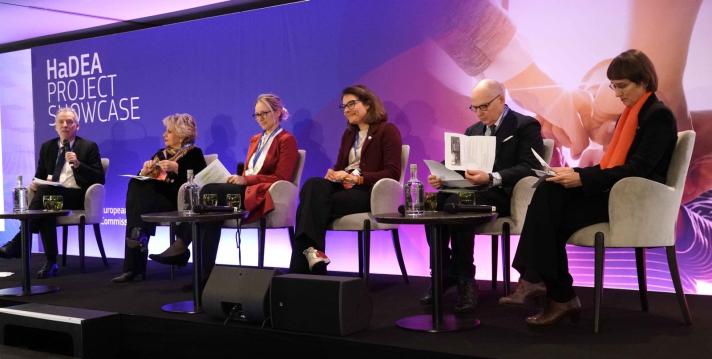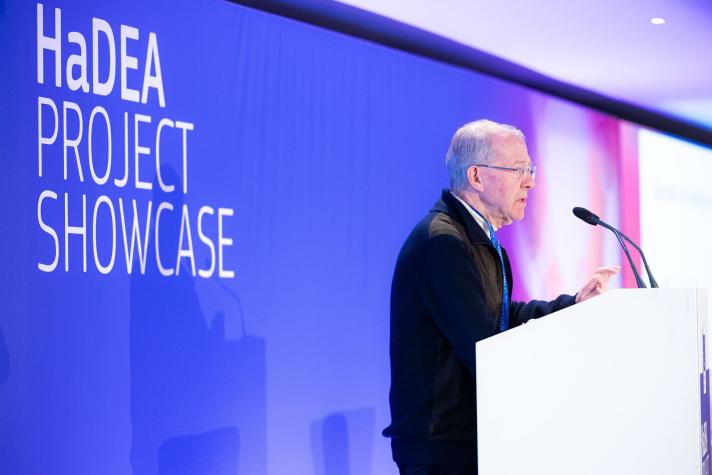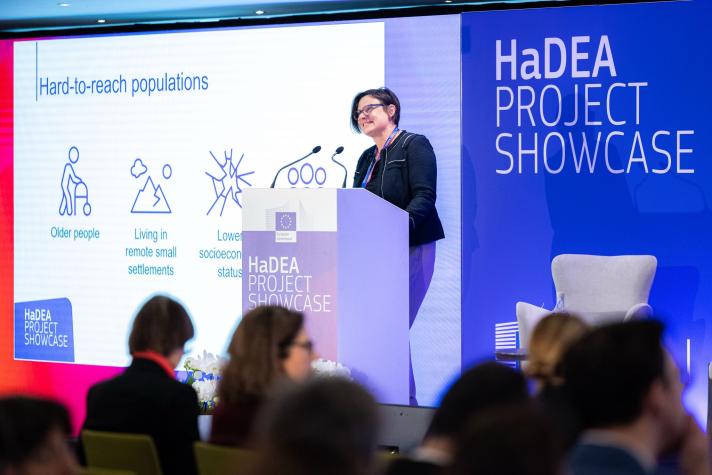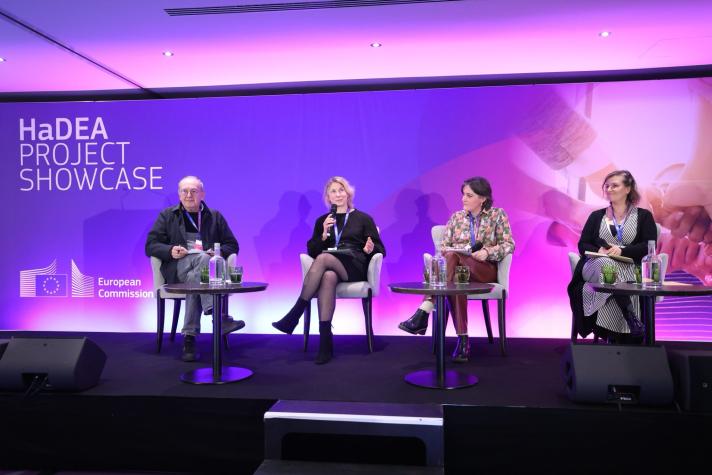Politics
Decoding European Politics – How The European Commission Shapes Policy Across The Continent

It’s vital for you to understand the role of the European Commission in shaping policy throughout Europe. This powerful institution is at the heart of the European Union’s governance, influencing economic, environmental, and social regulations that impact your daily life. Through its legislative proposals and initiatives, the Commission plays a pivotal role in fostering cooperation and unity among member states. This blog post will guide you through the intricate workings of the Commission, revealing how its decisions directly affect your community and the continent as a whole.
The Structure of the European Commission
Your understanding of the European Commission’s structure is necessary for grasping how policies are formulated and implemented across Europe. This executive body is primarily composed of a team of Commissioners, one from each member state, who are appointed to represent the interests of the Union rather than their home countries. Each Commissioner is assigned specific portfolios that correspond to key areas such as trade, environment, and regional development. This organized approach allows the Commission to tackle complex issues and ensures that diverse perspectives are integrated into policy-making. Furthermore, the Commission operates with a multi-level structure that includes Directorates-General (DGs) and various specialized agencies, enhancing its capacity to address the continent’s varied challenges effectively.
Roles and Responsibilities
At the heart of the European Commission’s function are its multifaceted roles and responsibilities. As the guardian of EU treaties, the Commission ensures that member states adhere to the agreements they have signed, promoting compliance through monitoring and enforcement activities. Additionally, the Commission plays a pivotal role in proposing new legislation, often initiating the legislative process that shapes EU policies. This involves not only drafting proposals but also conducting extensive impact assessments, engaging with stakeholders, and negotiating with other institutions such as the European Parliament and the Council of the European Union.
Decision-Making Process
DecisionMaking within the European Commission is a well-structured and systematic process that aims to balance multiple interests and perspectives. It begins with the identification of policy issues, followed by consultations with various stakeholders, including governments, businesses, and civil society. These consultations inform the drafting of legislative proposals, which are then evaluated and revised within the Commission. Once agreements are reached, the proposals are forwarded to the European Parliament and the Council of the European Union for consideration and adoption.
Another aspect of the decision-making process involves the collaboration between different departments within the Commission, often referred to as inter-service consultations. This ensures that all relevant DGs contribute their expertise and viewpoints, creating a comprehensive approach to policy-making. It also enhances coherence across various policy areas, allowing the Commission to present a unified front when dealing with external partners. Through this meticulous process, the European Commission seeks to create legislation that not only aligns with its strategic goals but also reflects the needs and aspirations of the EU’s diverse populations.
Influence on Policy Formulation
Even though the European Commission operates within a complex institutional framework, its impact on policy formulation across Europe is profound. The Commission holds the unique capability to propose new legislation and shape the fundamental directives that will guide the actions of EU member states. This power makes your understanding of the Commission’s role important for navigating the intricacies of European politics. As the guardian of the treaties, the Commission ensures that member states adhere to EU laws and policies, reinforcing the coherence and integrity of the European Union as a whole.
Legislative Initiatives
Initiatives presented by the European Commission are pivotal in shaping legislative frameworks within the EU. Each year, the Commission outlines a work program that highlights various priorities and areas for potential new laws, reflecting your interests and the collective goals of citizens across Europe. Through this process, the Commission directly influences the legislative agenda, enabling you to grasp how your needs and concerns are addressed at a continental level. By initiating proposals that can later evolve into binding laws, the Commission serves as a mechanism that connects local and European interests with overarching policies.
Agenda-Setting
Legislative proposals by the Commission play a central role in agenda-setting, which importantly determines the political priorities for the EU. By deciding which issues to prioritize, the Commission allows you to better understand the direction of EU policies and their implications for your country and community. This agenda-setting capacity enables the Commission to spotlight vital issues that may otherwise be overlooked, ensuring that they receive attention from both lawmakers and the public alike.
In fact, your understanding of the agenda-setting process also reveals how the Commission reacts to emerging challenges, such as climate change or economic crises. By integrating contemporary issues into its proposed agenda, the Commission ensures that policies are relevant and responsive to the evolving context in which you live. This dynamic approach highlights the significance of the Commission’s influence over policymaking, reinforcing the notion that the European political landscape is constantly adapting and responding to the needs of its diverse population.
The European Commission and Member States
Now that you understand the role of the European Commission in shaping policy, it’s important to explore into its interactions with national governments. The Commission works closely with member states, providing a vital link between the European Union’s overarching policies and the individual concerns of each nation. This collaboration is not merely about enforcing laws; it involves consulting and negotiating with your government representatives to ensure that local contexts are taken into account when formulating EU policy. This dialogue fosters a sense of cooperation, allowing for a more effective implementation of policies that need the support and participation of all member states.
Interactions with National Governments
States have different interests, priorities, and political climates, which can significantly impact how policies are received and enforced at the national level. When the European Commission proposes new regulations, it must not only consider the legal framework but also how these laws will be adapted by your country. The involvement of your national government is important in this sense, as it ensures that the unique perspectives and needs of your state are voiced in the broader EU discussion. Such interactions are critical for maintaining a balanced approach to governance in the diverse landscape of the European Union.
Balancing Interests of Diverse Countries
Against this backdrop, the European Commission faces the challenge of balancing the interests of diverse countries while crafting policies that are both effective and equitable. Each member country brings its own economic, cultural, and historical context to the table, complicating the policy-making process. Your nation may require specific regulatory adjustments that differ from its neighbors, highlighting the necessity for dialogue and negotiation to reach a consensus that respects these differences.
Commission awareness of these diversities plays a vital role in fostering unity among member states. By actively engaging in discussions and seeking to understand your national position, the Commission aims to create policies that are not only beneficial at a continental level but also respectful of local sensitivities and priorities. This delicate balancing act is fundamental for the EU to function cohesively while recognizing the unique identity of each member state. Such inclusivity ensures that policies are not just decrees handed down from Brussels, but living agreements that resonate with the citizens across Europe, including you.
The Role of Stakeholders
Keep in mind that the influence of stakeholders in the European political landscape is significant. The European Commission ensures that various stakeholders have a voice in shaping policies that affect their lives. Stakeholders include not only Member States and politicians but also civil society organizations, businesses, and interest groups. Understanding how these entities engage with the Commission can help you navigate and interpret the dynamics of European policy-making. For further insights into the Commission’s role in stakeholder engagement, visit the Role – European Commission webpage.
Engaging Civil Society and Interest Groups
On your journey through European politics, you will find that the European Commission actively seeks to engage with civil society and interest groups. This engagement is necessary because these groups represent diverse perspectives and interests within society. They contribute to policy development by providing valuable insights and feedback that can shape the direction of initiatives and legislation. By consulting with these stakeholders, the Commission ensures that policies are designed to be inclusive and reflective of the broader societal context.
Public Consultations and Feedback Mechanisms
On the other hand, public consultations and feedback mechanisms play a pivotal role in gathering input from the general population and various stakeholder groups. These mechanisms offer you an opportunity to voice your opinions on emerging policies, projects, and future legislative proposals. The feedback collected from these consultations is not merely for show; it directly influences decision-making processes within the Commission, often leading to modifications or refinements in proposed initiatives.
Feedback from public consultations is invaluable as it allows for a more democratic approach to policy creation. The input you provide can highlight potential issues or alternative solutions that decision-makers may not have considered. By participating in these consultations, you help ensure that the policies crafted by the European Commission resonate with the needs and aspirations of your community and beyond. This engagement fosters a sense of ownership and responsibility among stakeholders, reinforcing the legitimacy of the policies that are eventually implemented across the continent.
Challenges Facing the European Commission
Political Resistance and Cohesion
All across Europe, the European Commission often encounters political resistance that makes its policymaking efforts more complex. You may notice that this resistance often stems from individual member states asserting their national interests, particularly when EU initiatives are perceived to encroach on domestic sovereignty. This struggle for cohesion can lead to delayed implementation of policies and, in some cases, a complete standstill in the legislative process, leaving the Commission in a challenging position where it must negotiate compromises that satisfy a wide range of political agendas.
Cohesion within the EU is not just a matter of policy; it also involves ensuring that diverse political landscapes align with broader European objectives. Your role as a stakeholder in this dialogue is necessary, as the decisions made within these political frameworks impact everyday life across the continent. Understanding the dynamics of political resistance helps you appreciate the complexities the European Commission faces as it works to achieve consensus and shape policy effectively.
Navigating Economic Disparities
After addressing political challenges, the European Commission must also navigate significant economic disparities among member states. In your observation, the economic variance can create friction, particularly when it comes to funding programs and implementing policies that require a cohesive financial approach. Wealthier nations may favor proposals that benefit them more directly, while less affluent member states often advocate for increased assistance and investment to catch up. This imbalance complicates the Commission’s role as it strives to promote equitable growth across all EU regions.
Indeed, the economic landscape in the EU is marked by stark contrasts that require sensitive and well-thought-out approaches. You may find it intriguing how the Commission attempts to bridge these gaps through various financial instruments, such as the European Structural and Investment Funds. These are designed to foster economic cohesion and drive investment into less developed areas, thereby promoting growth and stability across the continent. By understanding how the Commission navigates these economic disparities, you can better grasp the broader implications for both policy development and the future of European integration.

Case Studies of Successful Policy Implementation
Not all policies impact Europe in the same way, but the European Commission has shown remarkable success in several areas. Some notable case studies of policy implementation that have made a noteworthy difference include:
- Single Market Initiative: Enhanced internal competition leading to a 9% increase in EU GDP over a decade.
- Fisheries Policy: Restored fish stocks to sustainable levels, with EU fish populations increasing by 16% since 2008.
- Circular Economy Action Plan: Aimed to reduce waste by 50% by 2030, incentivizing recycling among member states.
- Digital Markets Act: Established fairer competition rules for tech giants; projected to create an additional €80 billion for the EU economy by 2025.
- Energy Union: Signed agreements to reduce carbon emissions by 55% by 2030, positioning the EU as a leader in climate policies.
For more insight into the European Commission’s frameworks and initiatives, you can visit the About – European Commission page.
Environmental Policy
After years of groundwork, the European Commission successfully launched the Green Deal, committing to transform the EU into a climate-neutral zone by 2050. This initiative not only focuses on reducing greenhouse gas emissions but also aims to protect biodiversity and foster sustainable agriculture. A reported 37% cut in emissions from 1990 levels by 2030 underscores the potential for this policy to shape environmental standards and actions across member states.
Digital Agenda
Digital transformation is at the forefront of the European Commission’s agenda. Digital technologies are being integrated into public administration, enhancing service delivery and user engagement. Funds allocated through the Digital Europe Programme aim to bolster digital skills and infrastructure, effectively preparing member states for a seamless transition into the digital age.
At its core, the Digital Agenda strives to enhance the digital economy, supporting innovation and technology adoption across sectors. You will find numerous funding opportunities and collaborative projects designed to empower individuals and businesses alike, ensuring that your role in this digital landscape evolves with the expanding capabilities and tech innovations across Europe.
Summing up
With this in mind, understanding the role of the European Commission in shaping policy across the continent is vital for grasping the complexities of European politics. As you navigate through the intricate landscape of EU decision-making, it becomes clear how the Commission not only drafts proposals but also serves as a mediator between member states, balancing diverse interests while striving for unity. This awareness equips you with the knowledge necessary to engage with and critically analyze the implications of European policy on your life and your community.
Furthermore, recognizing the Commission’s influence on various sectors—from environmental regulations to economic policies—allows you to appreciate the broader context in which these decisions are made. By staying informed about the mechanisms employed by the European Commission and its ongoing impact, you fortify your ability to participate in discussions regarding the future of Europe. Ultimately, this insight empowers you to play a more active role in shaping a continent that is ever-evolving in its political and social fabric.
Politics
Alternative fuels: €422 million of EU funding to boost zero-emission mobility
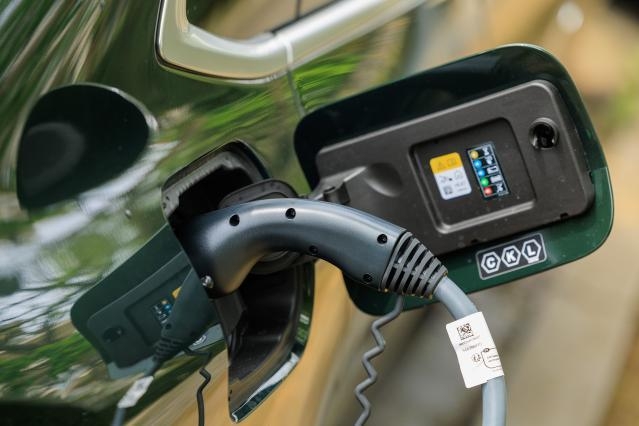
The EU is allocating nearly €422 million to 39 projects that will deploy alternative fuels supply infrastructure along the trans-European transport network (TEN-T), contributing to decarbonisation. These projects have been selected under the first cut-off deadline of the 2024-2025 Alternative Fuels Infrastructure Facility (AFIF) of the Connecting Europe Facility (CEF), the EU funding programme supporting European transport infrastructure.
With this selection, the AFIF will support approximately 2,500 electric recharging points for light-duty vehicles and 2,400 for heavy-duty vehicles along the European TEN-T road network, 35 hydrogen refuelling stations for cars, trucks and buses, the electrification of ground handling services in 8 airports, the greening of 9 ports and 2 ammonia and methanol bunkering facilities.
Next steps
Following EU Member States’ approval of the selected projects on 4 February 2025, the European Commission will adopt the award decision in the coming months, after which the results will become definitive. The European Climate, Infrastructure and Environment Executive Agency (CINEA) has started the preparation of the grant agreements with the beneficiaries of successful projects.
Background
The second phase of the AFIF (2024-2025) was launched on 29 February 2024 with a total budget of €1 billion: €780 million under the general envelope and €220 million under the cohesion envelope. Its goal is to support objectives set out in the Regulation for the deployment of alternative fuels infrastructure (AFIR) regarding publicly accessible electric recharging pools and hydrogen refuelling stations across the EU’s main transport corridors and hubs, as well as the objectives set in the ReFuelEU aviation and the FuelEU maritime regulations.
The call for proposals covers the roll-out of alternative fuels supply infrastructure for road, maritime, inland waterway and air transport. It supports recharging stations, hydrogen refuelling stations, electricity supply and ammonia and methanol bunkering facilities.
The call remains open for applications and the next cut-off deadline is 11 June 2025.
For more information
Source link
Politics
HaDEA project showcase: recording now available
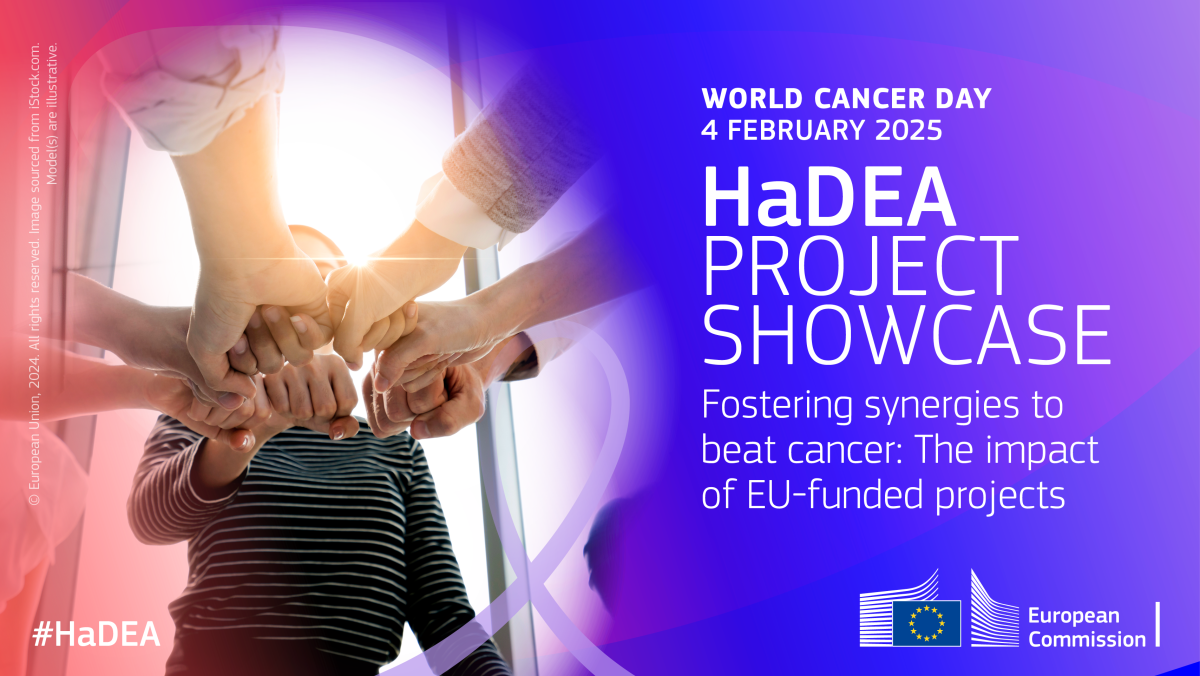


DISCLAIMER: Information and opinions reproduced in the articles are the ones of those stating them and it is their own responsibility. Publication in The European Times does not automatically means endorsement of the view, but the right to express it.
DISCLAIMER TRANSLATIONS: All articles in this site are published in English. The translated versions are done through an automated process known as neural translations. If in doubt, always refer to the original article. Thank you for understanding.

On 4 February, World Cancer Day, HaDEA organised a project showcase event on ‘Fostering synergies to beat cancer: The impact of EU-funded projects’.
The event was an important opportunity to demonstrate the impact of various grants and tenders managed by HaDEA in relation to Europe’s Beating Cancer Plan and the EU Mission on Cancer.
220 people attended the event in person and close to 500 attended online. Various stakeholders were present, EU-funded projects on cancer, NGOs and health organisations working in the field of cancer, National Contact Points and National Focal Points and policymakers.
The discussions across all panels highlighted the critical importance of collaboration, data use and sharing, equity and innovation in addressing cancer care and research. The focus of the event was on cross-sector synergies and a multistakeholder approach, which are vital for advancing cancer care and enhancing patient outcomes.
Revisit the discussions and watch the recording of the event
Check out the full programme
HaDEA project showcase – programme
Take a look at the projects featured at the HaDEA stand
Horizon Europe projects – HaDEA project showcase
EU4Health, CEF, DEP projects – HaDEA project showcase
Take a look at a few pictures from the event
|
Marina Zanchi, Director of HaDEA |
Sandra Gallina, Director-General of DG SANTE |
|
Plenary session |
Charlotte van Velthoven-Geerdink |
|
Erik Briers, Europa Uomo, PRAISE-U project |
Erika Pataki, SOLACE project |
|
Panel 1: Prevention, early detection and screening |
HaDEA project showcase |
|
Ineke Helmer, PREFERABLE project |
Panel 2: From diagnosis to treatment |
|
Erik Sturesson, Youth Cancer Europe, EU-CAYAS-NET |
Panel 3: Reducing inequalities and improving quality of life |
Source link
More from the author
– EXCLUSIVE CONTENT –
Politics
Ukraine: Remarks by High Representative Vice President Kaja Kallas at the joint press point following the meeting of the Core Group on the Establishment of a Special Tribunal for the Crime of Aggression Against the country
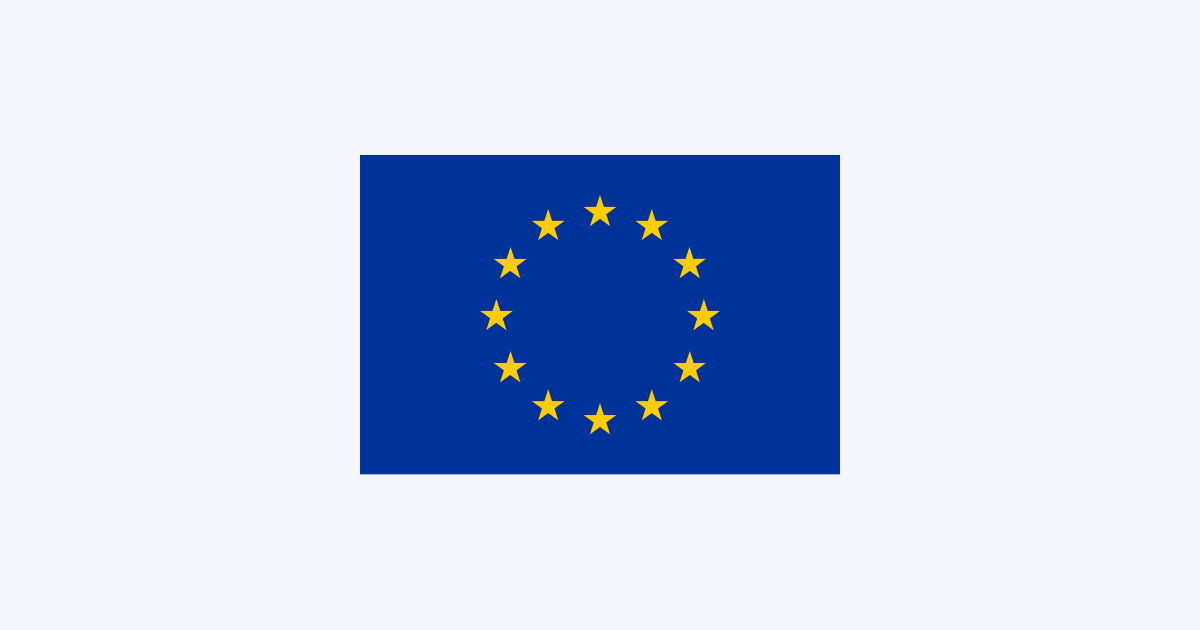
DISCLAIMER OPINIONS: The opinions of the authors or reproduced in the articles are the ones of those stating them and it is their own responsibility. Should you find any incorrections you can always contact the newsdesk to seek a correction or right of replay.
DISCLAIMER TRANSLATIONS: All articles in this site are published in English. The translated versions are done through an automated process known as neural translations. If in doubt, always refer to the original article. Thank you for understanding.
DISCLAIMER PHOTOS: We mostly used photos images that are readily available online, from free sources, or from the people promoting the news. If by any chance it happens that we have used one of your copyrighted photos, please do not hesitate to contact us and we will take it down without question. We do not make profits as this is a not for profit project to give voice to the voiceless while giving them a platform to be informed also of general news, and it is completely free.
-

 EU & the World6 days ago
EU & the World6 days agoWhere Was Kash Patel Born? Trump’s Cabinet Nominee’s Background
-

 Sports6 days ago
Sports6 days agoVarese basketball: Herman Mandole expects a reaction against Olimpia Milano
-

 Sports6 days ago
Sports6 days agoSerie A 2024-2025: Parma-Lecce, the likely lineups
-

 Sports6 days ago
Sports6 days agoLa Liga 2024-2025: Leganes-Rayo Vallecano, likely lineups
-

 EU & the World6 days ago
EU & the World6 days agoWho Is Chuck Todd? Meet the Former NBC News Journalist
-
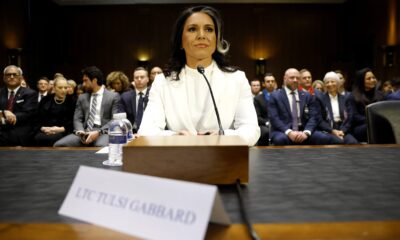
 EU & the World6 days ago
EU & the World6 days agoDid Tulsi Gabbard Get Confirmed? Update on Her Nomination
-

 EU & the World3 days ago
EU & the World3 days ago10 Tips to Prepare for a Psychic Reading
-

 Sports6 days ago
Sports6 days agoReyer Venezia: Neven Spahija ready to give battle to Virtus Bologna



